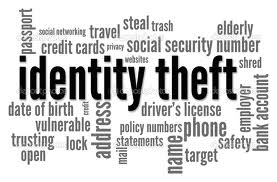Today’s Grave Robbers: Identity Theft and the Deceased
The term “grave robbing” used to refer to the appalling act in which thieves would dig up graves and steal a deceased person’s body and/or belongings. Today that term has taken on a new definition that is not only atrocious; it is also becoming an alarming trend. Over the past few years the number of identity theft cases involving the deceased has grown exponentially. Identity thieves know family members are too busy mourning the loss of a loved one to worry about protecting his or her identity. After all, who would think to protect the identity of a loved one who is deceased?
It is estimated that over 2.5 million deceased Americans become victims of identity theft each year. Identity thieves can get loans, obtain credit cards, and even apply for jobs under these stolen identities. About 800,000 deceased people are deliberately targeted—meaning the thieves know the person has passed away. That’s a shocking 2,200 people every day. While the debt amounts and numbers of cases found by authorities are astounding, the hassle and stress associated with recovering a deceased person’s identity and resolving those debts is damaging enough. Luckily, there are ways family members can prevent identity theft and enjoy a little peace-of-mind.
The three credit reporting agencies—TransUnion, Experian, and Equifax—can take up to six months to recognize that a person has passed away. This is prime time for identity thieves to take action, and they can do a tremendous amount of damage in this timeframe. When a loved one dies, family members should immediately notify all agencies and authorities rather than wait for them to receive word on their own. This can be done by:
- Sending a death certificate to each of the credit reporting agencies. Only official copies are accepted, so it is recommended that family members obtain at least a dozen copies.
- Requesting an alert on the deceased’s credit report that states “Deceased. Do not issue credit.” This will prevent new accounts from being opened.
- Sending a death certificate to any credit card companies, financial institutions, and even collection agencies where the deceased may hold accounts.
- Notifying the DMV and canceling the deceased’s driver’s license so an identity thief cannot change the address and use the license to commit fraud.
- Sending a death certificate and reporting the death to the Social Security Administration. A person’s Social Security number is one of the most important pieces of information used to steal an identity.
- Contacting the bank to setup a credit freeze so identity thieves cannot open new accounts.
Family members should send all correspondence via certified mail and keep copies of their correspondence as well. They can also prevent identity theft by shredding documents containing the deceased’s personal information before discarding them.
Obituaries
Identity thieves often scan local obituaries looking for their next victims. Families can prevent making their loved one a target by omitting any valuable personal information, such as date of birth, birthplace, spouse’s name, address, and maiden name.
Review Credit Reports
The executor of a deceased person’s estate or his surviving spouse may request a copy of his credit report from each of the credit reporting agencies. Family members should examine the credit reports carefully and see if any suspicious activity—such as new credit card accounts or credit inquiries—have been made. Credit reports should be pulled immediately after death and then again a few months later.
These are some of the most important ways a family member of a deceased person can help prevent identity theft. Since these issues can be overwhelming, especially in the days and weeks following a loved one’s death, it’s often best to seek out professional assistance. Contact an identity theft prevention expert at 310.831.4400 and visit www.TheIdentityAdvocate.com for more information about protecting your loved one’s identity and reputation long after they’re gone.
You can also help prevent identity theft by hiring ID Theft Solutions, which is the only identity theft protection company managed by law enforcement and focuses on returning your identity back to pre-theft status.
Tags: deceased identity theft, identity theft and deceased, identity theft prevention, prevent identity theft, preventing identity theft
This Entry was posted by Linda Vincent
Monday, June 10th, 2013 / Identity Theft.
You can follow any responses to this entry through the RSS 2.0 feed.
Responses are currently closed, but you can trackback from your own site.





